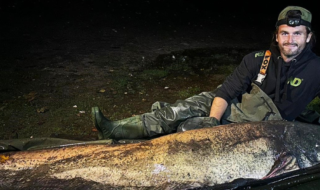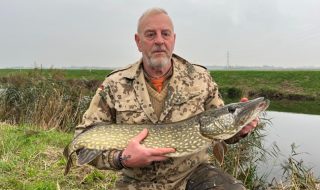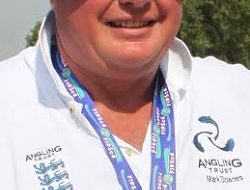Richard Benyon MP (Defra Minister for the Natural Environment & Fisheries) was a guest speaker at a Parliamentary meeting [1] on water policy on Tuesday, 31st January, which was organised by the Game & Wildlife Conservation Trust.
The meeting was attended by a significant number of all-party MPs, who heard the latest from the Government on how it plans to protect our precious but dwindling rivers and water supplies. Experts from the Game and Wildlife Conservation Trust (GWCT) [2] and the Salmon and Trout Association (S&TA) [3] highlighted the pressing problems facing our aquatic habitats.
The main threats to our rivers and wetland habitats identified by the GWCT include:
• Rivers drying up because of over-abstraction for industry, agriculture and to meet our domestic demands for water
• Continuing pollution from inappropriate land management practice, poorly treated sewage and urban run-off
• Damage to fish migration through river systems from the proposed expansion of renewable energy using hydropower.
The Government’s recent Water White Paper highlights some of the issues, but the big question remains: Will this once in a generation opportunity be taken to set our rivers, wildlife and water on the right course?
In response to the presentations made by the GWCT and the Salmon & Trout Association, Richard Benyon MP, said, “We set out two approaches in the Water White Paper to tackle abstraction, we need reform of the licensing system in the medium to long term, but in the short term we need to take action to prevent damage happening now.
“I am convinced that the best vehicle for improving the condition of our rivers lies in working with local groups, such as land and riparian owners, Rivers Trusts, farmers, and angling and nature groups, to stimulate the actions needed to reduce pollution and improve water quality.”
GWCT Director of Policy, Dr Alastair Leake, said: “There is more pressure than ever before on our rivers and aquatic wildlife from agriculture. From the loss of productive soil from fields to the levels of pollution in our rivers, it matters to ensure farming is part of the solution not part of the problem. We are leading research in this area of policy [4] and we call on the Government to use our knowledge to inform its policy decisions [5]. We need to bring all sections of the community with us to ensure success [6].”
S&TA CEO, Paul Knight, added: “With river water, quantity matters as well as quality: these two things are closely linked. We need to plan far better how water is abstracted from rivers if we are to ensure a future for our fish and other river wildlife.”
Dr Leake concluded: “Policy on generating electricity from river flow [7] should include a strong commitment to avoid significant damage to river habitat and the long term security of migrating fish populations wherever possible.”
Together with the S&TA, the GWCT is putting the case for a co-ordinated approach to water policy, backed up by scientific evidence, which ensures a healthy future for our water supplies, rivers and the wildlife which depends upon them.





